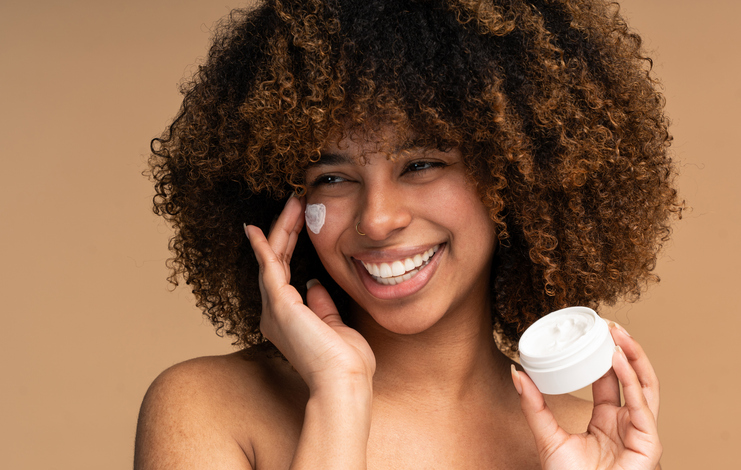Are You a Party Girl or an Alcoholic? The 10 Ways To Tell
Are You a Party Girl or an Alcoholic? 10 Ways to Tell the Difference
Share the post
Share this link via
Or copy link
Among me and all of my friends, every single one of us has either been affected by alcoholism or dealt with an addiction personally. In the African-American community, one of the reasons alcoholism is so prevalent and often fatal is because we tend to not take it as seriously. Drunken fist fights, binges and blackouts are a Friday night with family and friends, not an indication of a problem. Witnessing several people in my family suffer from addiction I can attest to the fact alcoholism is a family disease: When one person suffers so does all who love them with secrets and shame and a feeling of helplessness. Alcohol attacks your life like a loose thread on a cheap dress: With every pull it slowly unravels until all that you’re left with something that doesn’t remotely resemble the life you once had. Check out the following signs that it’s all about to fall apart and one way to try and keep it all together.
1. Your professional life suffers.
Remember your career, or other interests that you used to be so passionate about? When your drinking begins to interfere with things that were once important in your life, it could signal a dependency. If you suddenly find yourself calling out from work or missing classes because you are too hung over to attend or prefer to spend your day with an 80 proof bottle, you may be experiencing some tell-tale signs of a drinking problem.
2. You have toast to the scumbags, douche bags and pretty much anything else.
A happy hour cocktail to celebrate a new promotion or a glass of wine with dinner is different than taking a shot to celebrate every success or mourn every failure. People suffering from alcohol dependency find an excuse to incorporate a drink into every high and low of life. If you find you can’t manage the daily up’s and down’s of each day without being under the influence, you might want to find other ways to deal with your stress.
3. People who once enjoyed talking to you and spending time with you, now avoid your company.
I remember the epiphany I had when I realized that when someone is battling alcoholism: It’s almost impossible to ever take them seriously. I began to realize that it wasn’t only the conversations held under intoxication that weren’t genuine; many of the conversations that were had when that person was sober weren’t authentic either. It was almost as if that person was so pre-occupied with conjuring up an excuse to drink that they could never fully focus on the conversation at hand.
What about the way you handle your social drinking? If three margaritas guarantee you become an emotional, dramatic, belligerent mess you may want to keep an eye on how many you’re throwing back. “Sloppy-girl” behavior is excusable one or two times, but if all your friends have to look forward at the end of a night of clubbing is dragging their mascara tear-tracked and bloody-knuckled friend home, it just becomes plain old awkward and embarrassing. Drama and drinking don’t have to go hand in hand. If your friends suddenly begin to pass on partying with you, you may want to re-evaluate your idea of a “good time”.
4. Alcohol gives you abilities you never had sober.
There’s a reason they call it liquid courage. Many of the people I witnessed battling alcohol abuse were clueless about how to relieve stress or express their anger in a healthy way. They would all bottle up their frustrations, and alcohol allowed them to release it all. Take your pick of any episode of Jersey Shore, The Real World or Bad Girls Club and you’ve seen at least one example of the “Dr. Jekyl/ Mr. Hyde” disorder. Alcohol depresses your inhibitions, leading some people who are otherwise reserved to become more confident. Those same inhibitions are what subconsciously tell you that a situation is dangerous or questionable, and when alcohol takes over your judgment becomes impaired leading you into situations where you start to write checks that you realistically can’t cash. You don’t need alcohol to be the best version of yourself and friends that don’t understand that have issues of their own.
5. You start to neglect personal responsibilities.
We’ve all heard at least one story lately of the mom who left her young children unattended in the home so she could post up at the club all night or travel the country chasing a man. Happy Hour vs. Homework Help shouldn’t be a difficult decision…at all. There’s more to life than partying and clubbing, especially when you have little ones at home who depend on you for safety and guidance. Many people mistakenly believe that if you don’t wake up every morning on the bathroom floor or binge drink, than you don’t have a problem with alcohol. Anytime there are legal ramifications and personal consequences to your drinking and partying, you could potentially have a problem. Alcohol abuse not only can put your safety in jeopardy, but also risk the safety of everyone you love based on your bad judgment.
6. Your tolerance improves.
This might be about the only thing that alcohol abuse helps improve in your life. When your body becomes routinely exposed to certain substances it builds up a tolerance, and over time you will find yourself needing more and more of the substance to get the same effect. This explains why if you have two drinks every other day to get “nice”, you may find in a couple of weeks those three drinks barely get you buzzed. Being able to handle your liquor is one thing, but is being able to drink a whole football team under the table really what you want to be known for?
7. You downplay the repercussions of your drinking.
DUI’s can’t be that major, since almost every celebrity gets at least one in their lifetime, right? Good luck with that if you aspire to be like Mel Gibson or Lindsay Lohan. Those of us present in reality know that there is nothing glamorous or Hot about a mug shot after a night of driving under the influence. It’s all fun and games until you’re being charged with involuntary manslaughter. Enough alcohol can have you thinking you can pilot a rocket ship to Mars, and in a world where people can barely drive sober, alcohol has never made anyone Mario Andretti. No matter how much the media tries to glorify or dismiss the faulty actions of celebs, if you find yourself making excuses for what you honestly know is reckless behavior, you’re no longer steering anything, your drinking is.
8. You drink way more than you intended to.
You’re getting ready for a grown and Hot night with your friends. You throw on a Hot Cavalli cocktail dress and plan for a night of class and sophistication straight out the pages of an Essence magazine. Four hours and three Long Island Iced tea’s later that Essence spread has turned into Nelly’s “Tipdrill” video with you spread eagled on the dance floor and Roberto Cavalli around your neck while some guy’s name you don’t even know is anxiously awaiting to you to make it clap so he can make it rain. Wait, that wasn’t what you planned for? When alcohol is running the show, you’re doing what it wants you to do, regardless of your intentions. While some know it’s time to walk away from the bar after one drink, others may need some extra help. Find a friend who will take charge and tell you enough is enough, or better yet, avoid these types of environments all together until you can gain better self-control.
9. You black out on a regular basis.
Some women may use the “blackout” as an excuse for questionable behavior, while other women genuinely drink to a point of no return. Blackouts are dangerous business and occur when someone consumes a large amount of alcohol in a short amount of time. Memory receptors in the brain become blocked causing it to not really forget what’s happening, but be unable to form memories in the first place. People suffering from blackouts may walk, talk and function as a sober person would, but not recall any of these actions the next day. Quick test if you suspect a friend is lights out: See how much difficulty they have remembering a combo of any three simple words such as “chair, phone and brush”. If they have a problem remembering after a few minutes, they could be experiencing a blackout. The University of California, Santa Barbara has excellent in-depth info on alcohol blackouts in case you’re still in the dark: http://www.soc.ucsb.edu/sexinfo/article/alcohol-blackouts
10. Not only are your friends and family concerned, but you are too.
If you are seriously questioning if your relationship with alcohol and partying is dangerous to yourself and those that care about you, then there’s a very good chance you are battling some form of alcohol dependency. Also, your family and friends may be the best witnesses you have to a life that is slowly deteriorating because they are able to look at your behavior from the outside. You may be irreversibly damaging close relationships and sacrificing your family’s feelings all for a “good time”. If you suspect you or someone in your life has a problem with alcohol there is help. Alcoholics Anonymous and Narcotics Anonymous offer resources and recovery programs. The Alcohol and Drug Information hotline is (800) 729-6686 or you can visit alcohol anonymous at www.aa.org.
A home where alcohol abuse and reckless behavior is present is a home filled with tension, fear and helplessness. Watching someone battle an addiction is so difficult because you realize there is only so much you as an outsider can do. It’s also that much more difficult to deal with because if you have never battled a substance addiction yourself you can’t ever truly make sense of that person’s behavior. Children of alcoholic parents often grow up with low self-esteem, feelings of depression and abandonment as well as high levels of guilt and anxiety. By recognizing your problem and getting help you’re not only saving yourself, but the people who love you as well.













